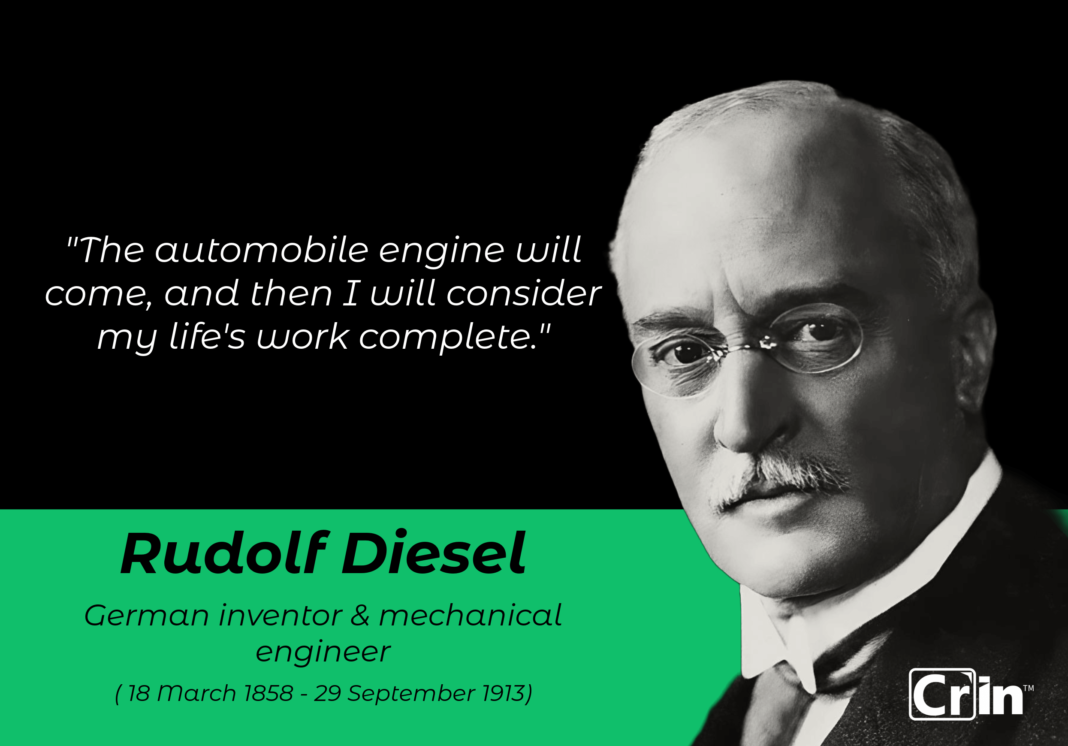Brief Description :-
Rudolf Diesel, a German inventor and engineer, forever changed the course of transportation with his namesake invention: the diesel engine. Born in 1858, Diesel’s brilliance shone early, leading him to excel in his engineering studies. While working for a refrigeration company, Diesel became fascinated with improving engine efficiency.
Fueled by the limitations of steam engines, Diesel envisioned an engine that could burn fuel more efficiently. After years of experimentation and refinement, he received a patent for his revolutionary concept in 1892. The diesel engine differed from its predecessors by using high compression to ignite fuel without a spark plug. This resulted in an engine that was more powerful and economical than anything before it.
Diesel’s invention had a profound impact. It revolutionized transportation, particularly for large vehicles like trucks and ships. It also found applications in power generation, providing a reliable and efficient source of electricity.
Beyond his technical genius, Diesel was also a social theorist. He envisioned his engine as a tool for empowering small businesses and artisans, allowing them to compete with larger industries. While this vision didn’t fully materialize, the impact of the diesel engine on global industry and trade remains undeniable.
However, Diesel’s story has a tragic twist. In 1913, he mysteriously disappeared overboard while traveling by ferry. Despite his immense contribution to the world, the circumstances surrounding his death remain a puzzle.
Rudolf Diesel’s legacy lives on in every rumble of a diesel engine. His invention continues to power our transportation networks, industries, and even some power plants. He stands as a testament to human ingenuity and the transformative power of innovation.
For detailed information, kindly visit Rudolf Diesel on Wikipedia



